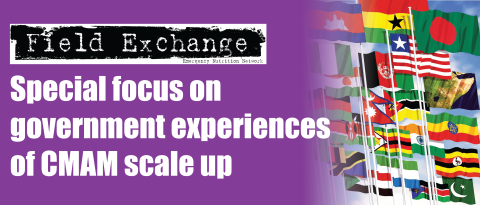MAMI-2 research prioritization – call for collaborators

In January 2010, the report of ‘The Management of Acute Malnutrition in Infants aged <6 months’ (the MAMI project)1 was released. Key findings included:
- Large numbers of affected infants worldwide: an estimated 3.8 million severely wasted and 4.5 million moderately wasted (WHZ <-3 and =-3 to <- 2 respectively, WHO Standards).2
- Higher mortality among infants <6m compared to children in the same treatment programmes - but no clear evidence as to how much of this might be avoidable with different treatments.
- Country guidelines focused on inpatient-based treatment for infants <6 months - in stark contrast to ‘Community Management of Acute Malnutrition’ for older children.
Thanks to a wide network of collaborators and supporters, the MAMI Project (MAMI-1) has already achieved one of its strategic goals: highlighting the need to tackle severe acute malnutrition (SAM) in infants <6 months. Thus, whilst previous WHO guidelines hardly mention this group, they are considered in forthcoming guidelines arising from a WHO Nutrition Guidance Expert Advisory Group (NUGAG) consultation in February 2012. This is a significant step forward. However, given current paucity of evidence as to what works for this vulnerable patient group, MAMI-1’s call for more published data and evidence is all the more urgent. Follow-up work, a MAMI-2, is needed. The ENN, UCL and ACF, as the original MAMI-1 core partners, are working to realise this.
As a first critical step, given the many unanswered questions around SAM in infants <6m, it is important to prioritise those with greatest potential impact on improving outcomes. The Child Health and Nutrition Research Initiative (CHNRI)3 has developed a methodology that allows systematic listing and transparent scoring of many competing research options, thus exposing their strengths and weaknesses. This has been successfully applied to many topics ranging from diarrhoeal disease to preterm birth and stillbirth4.
Over July and August 2012, we will be applying the CHNRI framework to MAMI. The intended output is a peer-reviewed paper in which all possible questions will be ranked and discussed. This can be used as a key reference to generate dialogue, policy, and also help agencies apply for both programme and research funding on the theme.
We need your help to:
- Refine or add to an established long list of research questions. These will be grouped under three broad headings: (i) health systems and policy research, (ii) epidemiological research, (iii) technical research to develop new interventions or improve existing ones
- Score the research questions according to (i) ease of being answered, (ii) effectiveness, (iii) deliverability, (iv) maximum potential for disease burden reduction, and (v) predicted impact on equity in the population.
All those returning a completed ranking (minimal time input required - a lunch break amusement!) will be named as MAMI group authors5.
If you would like to take part in the research prioritisation exercise, please contact us at: mami.project.contact@gmail.com We also welcome dialogue with individuals and agencies wishing to become more closely involved in MAMI-2 efforts.
Please share information about this initiative with colleagues, including those in other relevant sectors such as reproductive health, psychosocial health, neonatal health, etc.
We look forward to hearing from you!
Contact: Marko Kerac (UCL), email: marko.kerac@gmail.com and, Marie McGrath (ENN), email: marie@ennonline.net
1http://www.ennonline.net/research/mami
2http://adc.bmj.com/content/96/11/1008.full.pdf
4http://www.chnri.org/publications.php
5e.g. in the same way as "Blantyre Working Group" authors on this paper http://www.thelancet.com/journals/lancet/article/PIIS0140-6736(08)60565-6/fulltext
Imported from FEX website


